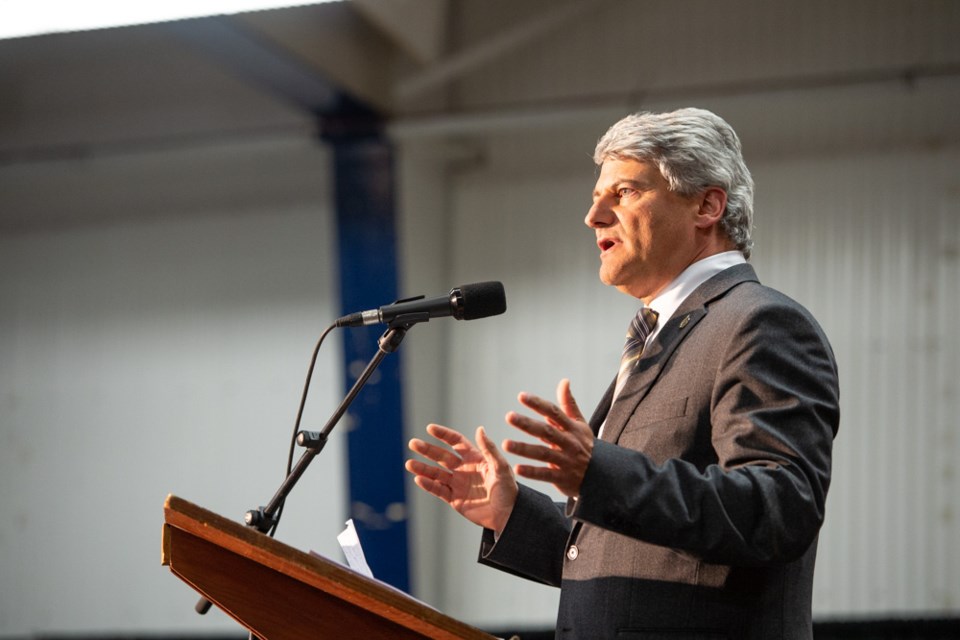Weyburn – Gérard Deltell, Conservative member of Parliament for Louis-Saint-Laurent, Quebec, came to the Saskatchewan Oil and Gas Show in Weyburn on June 5 with a particular message, one that may not be thought of very much in Saskatchewan.
That message? Not all of Quebec is against oil and gas.
Asked about Quebec’s premier saying there is no taste for Alberta’s “dirty oil” in Quebec, Deltell said, “There is a difference between people. There is a difference of opinion. You know that in Quebec, we have 2,000 kilometres of pipeline. There are nine pipelines under the St. Lawrence River. We just built a new pipeline in 2012 between Lévis and Montreal, 228 kilometres in the place that is the populated area, and we did it well.
“So yes, there is a possibility for us to do things correctly, and we intend to do that with a corridor of energy.”
Deltell is an advocate for a national energy corridor, a concept of having a common, pre-approved right-of-way for pipelines and electrical transmission across the country. Deltell said, “Since May 16, when Andrew Scheer, leader of the Conservative Party, tabled that project saying a Conservative government will work hard to have a corridor of energy, there is a lot of enthusiasm about that. This is a win-win and a nation-building project. We will take the energy from the east to the west, and the west to the east. This will be good for the country.
“And we need to have a corridor where we will put everything on – electricity, pipelines, everything. When we transfer our energy, this is one-shot deal. One place, one agreement to everybody, and it will be a win-win from east, from west, from centre, from each and every Canadian,” Deltell said.
Regarding the defunct Energy East project, he said, “As you know, Energy East is dead. The project is not anymore there. But what we think is the corridor of energy is the future of that, because there will be a place to ship petroleum everywhere in the country, from west to east, but also, we can send electricity from east to west, and this is a real win-win situation, and making First Nations a partner in prosperity.”



